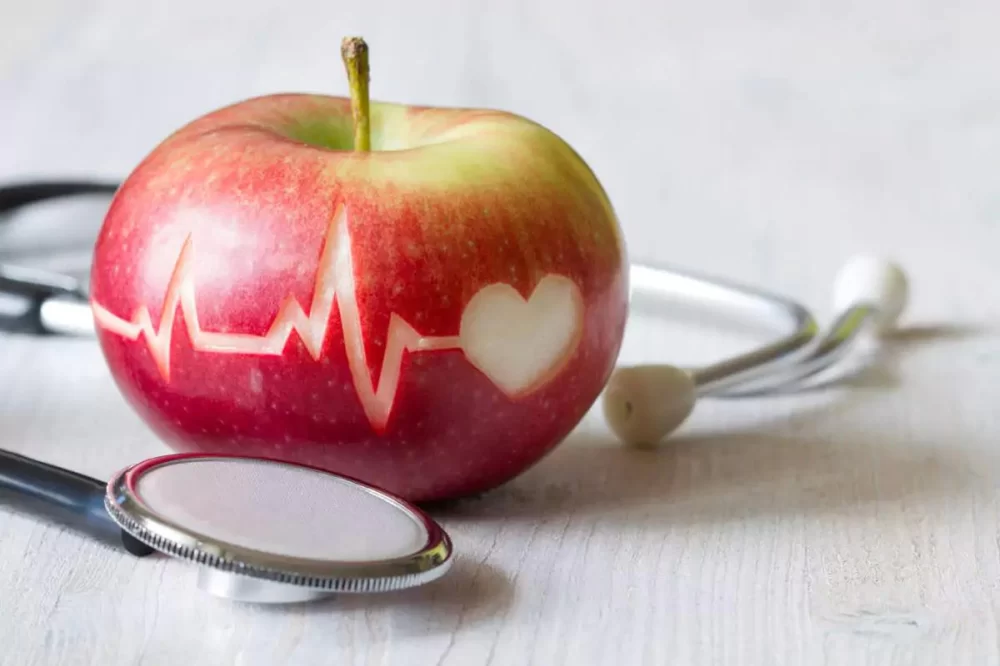How Antioxidants Help Prevent Heart Disease
As a cardiologist, I’ve spent years working with patients to help them understand the many factors that contribute to heart disease, and one of the most fascinating areas of study is the role of antioxidants in heart disease prevention. Antioxidants are compounds found in many foods that help protect the body from oxidative stress, which is one of the key contributors to the development of heart disease. In this article, I will explain how antioxidants work to protect the heart, share examples of heart-healthy foods rich in antioxidants, and provide some practical tips on incorporating them into your diet to reduce your risk of heart disease.

1. What Are Antioxidants and How Do They Work?
To understand the role of antioxidants in heart disease prevention, we need to first understand what they are and how they work. Antioxidants are molecules that neutralize free radicals—unstable molecules that can damage cells and tissues in the body. Free radicals are produced naturally in the body during normal metabolic processes, but they can also be generated by exposure to environmental factors like pollution, cigarette smoke, and UV rays.
The damage caused by free radicals is known as oxidative stress, and over time, it can cause inflammation and damage to the walls of blood vessels. This leads to the development of conditions like atherosclerosis (narrowing and hardening of the arteries), which is a major contributor to heart disease. Antioxidants help to neutralize these free radicals, reducing oxidative stress and protecting the heart and blood vessels from damage.
One of my patients, Emily, a 55-year-old woman with a family history of heart disease, was concerned about her cardiovascular health. After learning about the benefits of antioxidants, we discussed incorporating more antioxidant-rich foods into her diet. Over the next few months, she felt more energetic, and her blood pressure improved, which was a clear indication that antioxidants were having a positive effect on her heart health.
Atlanta Heart Specialists
atlanta heart specialists
4375 Johns Creek Pkwy #350, Suwanee, GA 30024, USA

2. The Best Antioxidant-Rich Foods for Heart Health
There are many foods that are naturally rich in antioxidants, and incorporating these into your diet can help protect your heart. Some of the most potent antioxidants for heart health include vitamins C and E, beta-carotene, flavonoids, and polyphenols. Below are some of the best foods that are high in these heart-healthy antioxidants:
- Berries: Blueberries, strawberries, raspberries, and blackberries are all packed with antioxidants, particularly anthocyanins, which have been shown to help reduce inflammation and improve blood vessel function. Eating a variety of berries daily can help support heart health.
- Leafy Greens: Vegetables like spinach, kale, and Swiss chard are excellent sources of antioxidants such as vitamin C and beta-carotene. These nutrients help protect the blood vessels from damage and support overall cardiovascular function.
- Dark Chocolate: Dark chocolate (with at least 70% cocoa content) is rich in flavonoids, which are antioxidants that help improve blood flow and lower blood pressure. Just be mindful of portion sizes, as dark chocolate can be calorie-dense.
- Tomatoes: Tomatoes are rich in lycopene, a powerful antioxidant that helps prevent the oxidation of LDL cholesterol (the “bad” cholesterol), which can lead to plaque buildup in the arteries.
- Nuts and Seeds: Walnuts, almonds, and sunflower seeds are high in both antioxidants and healthy fats, which can help reduce inflammation, improve cholesterol levels, and lower the risk of heart disease.
- Green Tea: Green tea is loaded with polyphenols, including catechins, which are powerful antioxidants that help reduce inflammation and improve the function of the blood vessels. Drinking green tea regularly can have a positive effect on heart health.
John, a 60-year-old patient who had high cholesterol and a sedentary lifestyle, started adding more berries and leafy greens to his daily meals, along with a cup of green tea each morning. After several months, his cholesterol levels dropped, and he reported feeling more energized. By making these simple changes, John improved his heart health and reduced his risk of cardiovascular disease.
3. How Antioxidants Reduce Inflammation and Improve Heart Health
Inflammation is a key contributor to the development of heart disease, and antioxidants play a significant role in reducing inflammation in the body. Chronic inflammation can damage blood vessels, promote the buildup of plaque in the arteries, and increase the risk of heart attacks and strokes. By neutralizing free radicals, antioxidants help reduce inflammation, protect blood vessels, and promote healthy circulation.
For example, I worked with Karen, a 52-year-old woman who had been dealing with high blood pressure and early signs of atherosclerosis. We focused on incorporating antioxidant-rich foods, such as dark chocolate and green tea, into her diet. Over time, her blood pressure improved, and her blood vessels became more flexible, reducing her overall cardiovascular risk.
4. The Role of Antioxidants in Reducing Oxidative Stress and Protecting the Arteries
Oxidative stress occurs when there is an imbalance between free radicals and antioxidants in the body. This imbalance can lead to damage in the blood vessels, promoting the development of plaque in the arteries. Antioxidants help neutralize free radicals and prevent the oxidative damage that contributes to the formation of arterial plaque. This is crucial in preventing conditions like coronary artery disease and heart attacks.
One of my patients, Steve, a 70-year-old man with a history of heart disease, came to see me for a routine checkup. After discussing his diet and lifestyle, we focused on incorporating more antioxidant-rich foods like tomatoes and leafy greens into his meals. We also worked on reducing his intake of processed foods and sugar. Over the course of a few months, Steve’s blood pressure and cholesterol levels improved, which helped reduce his risk of further heart issues.
5. Practical Tips for Increasing Antioxidants in Your Diet
Incorporating antioxidants into your daily routine is easier than you might think. Here are some practical tips to help you get started:
- Start with breakfast: Add berries to your oatmeal or yogurt. Blend some spinach or kale into your smoothie for a boost of antioxidants right from the start of your day.
- Snack on nuts: A handful of walnuts or almonds makes for a heart-healthy snack that is rich in antioxidants and healthy fats.
- Drink green tea: Swap your afternoon coffee for a cup of green tea to benefit from its antioxidant properties.
- Cook with tomatoes: Add tomatoes to your salads, soups, or pasta dishes. Cooking tomatoes increases the availability of lycopene, a powerful antioxidant.
By consistently including these antioxidant-rich foods in your diet, you can reduce your risk of heart disease and improve your overall cardiovascular health. Remember, small changes can lead to big results over time.
At HeartCare Hub, we are committed to helping our patients manage their heart health through both traditional and natural remedies. If you’re looking for personalized advice on how to incorporate antioxidants into your diet or improve your cardiovascular health, we are here to help you every step of the way.






















Deborah Heart and Lung Center
deborah heart and lung center
200 Trenton Rd, Browns Mills, NJ 08015, USA